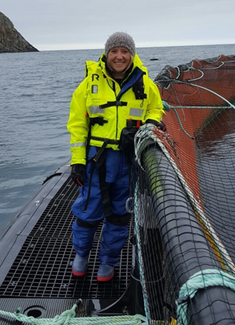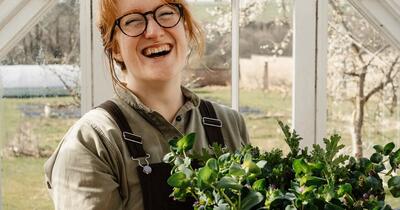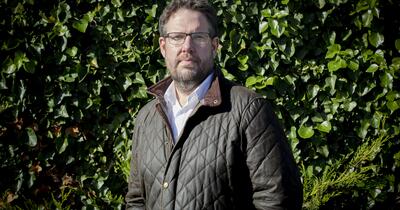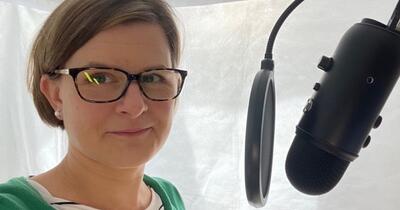
Aquaculture and sustainability expert Aisla Jones NSch 2021 has published her Nuffield Farming report entitled ‘How can retail and supply chains support demand for more sustainable aquaculture feed?’, sponsored by The Richard Lawes Foundation.
Aisla travelled throughout Brazil, Norway, Singapore, Thailand, UK and the USA during her Scholarship.
During her study, Aisla explored the environmental impacts of traditional and ‘alternative’ aquafeed ingredients and identified opportunities for retailers and seafood supply chains to support more sustainable feed ingredient production and use.
“In the last few years, many UK retailers and seafood companies have set ambitious carbon emissions targets as well as having broad responsible sourcing policies which include seafood,” she explained in her report.
As a result of her findings, Aisla recommends: “More clear and consistent asks from aquaculture supply chains could encourage feed companies to prioritise feed sustainability when formulating feed. An opportunity to support best practice and drive sustainability could be the creation of an independent holistic risk assessment tools focused on feed ingredients and in a format readily accessible to non-feed experts.
“Collaboratively addressing responsible sourcing of aquaculture feed ingredients could support the long-term sustainability and availability of feed ingredients for the aquaculture sector.”
Aisla chose to follow the new accredited report route with the Institute of Biological, Environmental and Rural Sciences (IBERS) at Aberystwyth University. This allowed her to gain academic credits for her Nuffield Farming report, which can be built upon for a Master’s Level qualification.
Her full report is now available on the Nuffield Farming website at www.nuffieldscholar.org/reports or can be downloaded directly at https://bit.ly/3RsNPNL.
Aisla will present her findings at the 2023 Nuffield Farming ‘Super’ Conference, held at Sandy Park near Exeter from 14-16 November. Tickets and additional details can be found on the Nuffield Farming website, and the event is open for all to attend.
Study objectives
- Gain a holistic understanding of the sustainability challenges and opportunities during production of aquaculture feed ingredients through supply chain visits, stakeholder interviews and existing literature.
- Identify opportunities for retailers and seafood supply chains to encourage best practice and support initiatives to lower the environmental impacts of aquaculture feed baskets.
Messages
- All feed ingredients have environmental challenges and opportunities, these are context specific.
- Sustainability can be improved in all feed ingredients- there are examples of improvement efforts globally.
- Most aquafeed data collection and certification is currently focused on ‘known risks’ i.e., environmental impacts of marine ingredients and soy.
- Data collection on workers in feed supply chains is limited.
- There are opportunities for aquafeed stakeholders i.e., those in aquafeed and aquaculture supply chains to better support feed sustainability initiatives.
- Of stakeholders interviewed, future aquafeed priorities included finding sustainable alternative ingredients, improving feed traceability and holistic risk assessment of feed ingredients.



